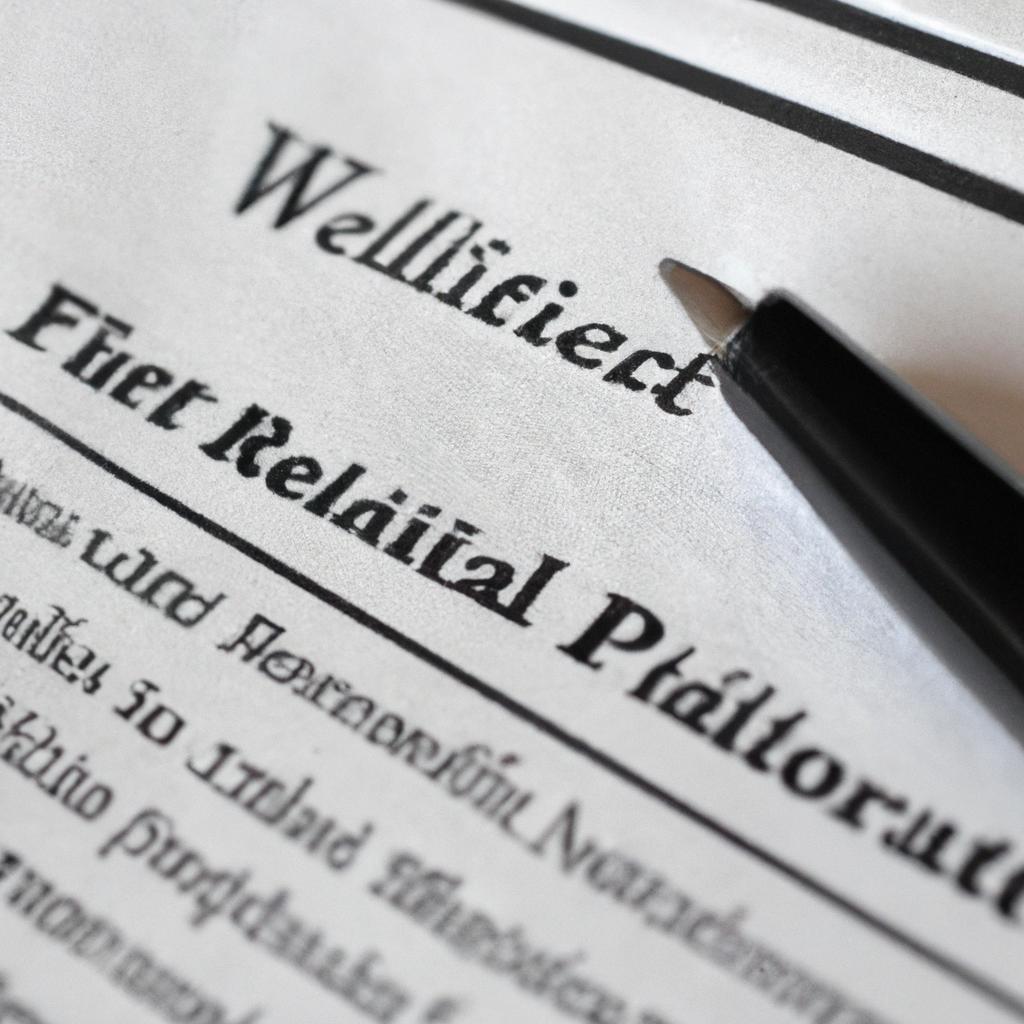In the intricate world of estate planning, the filing of a will is a pivotal moment in the probate process. As seasoned legal professionals at Morgan Legal Group in New York City, we understand the importance of ensuring that a loved one’s final wishes are carried out as intended. One common question that arises is, “How do you find out if a will has been filed?” In this article, we will delve into the steps and resources available to navigate this crucial aspect of estate administration.
Determining the Existence of a Filed Will
To determine the existence of a filed will, you must first gather information on the deceased individual and their legal documents. Start by contacting the deceased person’s attorney, if known, to inquire about the will’s location. If the attorney is unable to provide information, reach out to the local probate court in the county where the deceased lived at the time of their passing. The probate court will have a record of any wills that have been filed for probate.
Next, check with any trusts or estate planning firms that the deceased individual may have worked with to see if they have a copy of the will on file. Additionally, reach out to the deceased person’s financial institutions, such as banks or investment firms, as they may have information on the existence of a will or trust. If all else fails, you can hire a probate attorney to help you search for the filed will and navigate the legal process. Remember, having a filed will is crucial in ensuring that the deceased person’s wishes are carried out appropriately.
Reviewing Probate Records for Will Filings
To determine if a will has been filed, it is essential to review probate records carefully. Probate records are legal documents that provide details about a deceased person’s assets, debts, and any instructions left in a will. By examining these records, you can determine if a will has been filed and begin the process of administering the deceased’s estate.
One way to review probate records for will filings is to visit the local probate court where the deceased lived. Inquire at the court clerk’s office about any filed wills for the deceased individual. Additionally, consider searching online databases for probate records in the deceased person’s county or state. Ensure to review any relevant documents carefully, including wills, trusts, and estate inventories, to determine if a will has been filed and to understand the deceased’s final wishes. Remember, the probate process can vary depending on the jurisdiction, so it is crucial to consult with a knowledgeable attorney for guidance.
| Probate Court | Status |
|---|---|
| New York County Probate Court | Active |
| Brooklyn Probate Court | Inactive |

Consulting with the Surrogate’s Court
If you are unsure whether a will has been filed with the Surrogate’s Court, there are steps you can take to find out:
- Visit the Surrogate’s Court in person and request to search their records.
- Check the court’s online database, if available, for information on filed wills.
- Contact an attorney who specializes in estate planning and probate to assist you in locating the will.
It is crucial to consult with the Surrogate’s Court to confirm if a will has been filed, as this document plays a significant role in determining the distribution of assets and carrying out the wishes of the deceased individual. By taking proactive steps to verify the presence of a will, you can ensure that the proper legal procedures are followed in handling the estate

Seeking Legal Counsel for Will Search Assistance
In order to find out if a will has been filed, it is essential to seek legal counsel for will search assistance. A qualified attorney can help navigate the complex process of locating and obtaining a copy of a will. Here are some steps to consider when seeking legal counsel:
- Consult with a reputable law firm that specializes in estate planning and probate.
- Provide the necessary information about the deceased individual, such as their full name, date of death, and last known address.
- Review any existing records or documents that may indicate the existence of a will, such as bank statements, property deeds, or insurance policies.
- Work closely with your attorney to conduct a thorough search of probate court records and other relevant databases.
Q&A
Q: How can I find out if a will has been filed?
A: If you suspect that a will may have been filed but are unsure of its status, there are a few steps you can take to investigate further.
Q: What is the first thing I should do to check if a will has been filed?
A: The first thing you should do is contact the probate court in the county where the deceased person resided. You can inquire about the existence of a will and request information on how to access it.
Q: Are there any online resources I can use to search for a filed will?
A: Some probate courts may have online databases where you can search for filed wills. Additionally, there are certain websites that offer a searchable database of wills and probate records.
Q: What information will I need to provide when inquiring about a filed will?
A: You will likely need to provide the full name of the deceased person, their date of death, and the county in which they resided at the time of their passing.
Q: Is there a fee associated with accessing a filed will?
A: Depending on the probate court or online resource you use, there may be a fee for accessing a filed will. It’s best to inquire about any potential costs upfront.
Q: What should I do if I find out that a will has been filed?
A: If you find out that a will has been filed, it’s important to review its contents to understand the deceased person’s wishes and any instructions they may have left regarding their estate.
Q: What if I cannot locate a filed will?
A: If you cannot locate a filed will, it may be helpful to consult with a probate attorney who can assist you in further investigating the matter and determining the appropriate next steps.
In Conclusion
In conclusion, finding out if a will has been filed can be a crucial step in ensuring that a loved one’s final wishes are carried out. By following the steps outlined in this article, you can navigate the legal process with confidence and peace of mind. Remember, seeking legal counsel or assistance from a probate court clerk can provide invaluable guidance in this important matter. Stay informed, stay organized, and may you find clarity and closure in the journey ahead.

